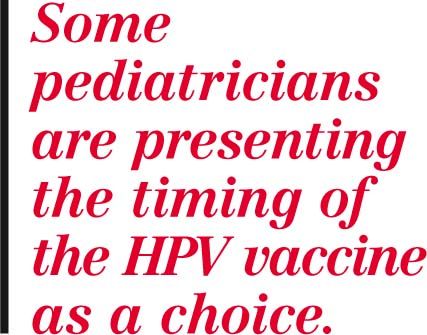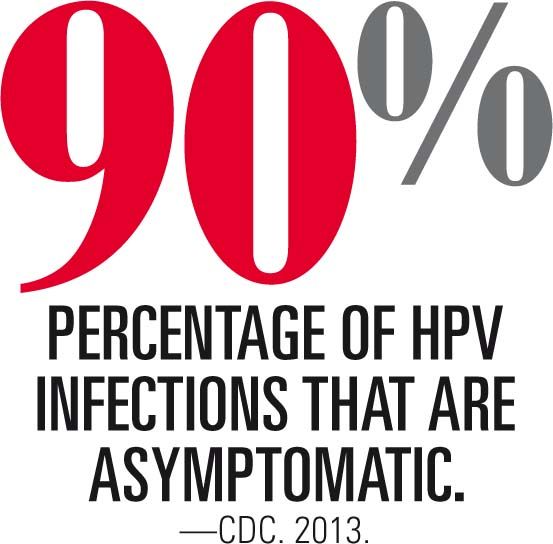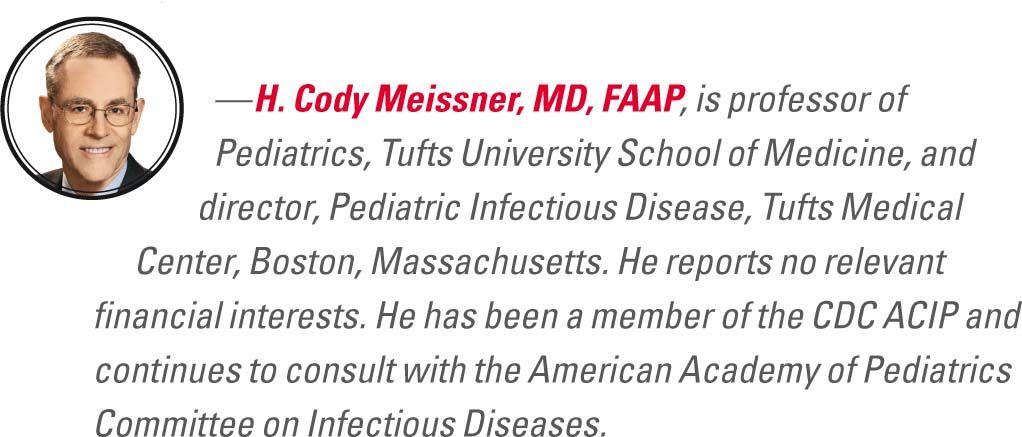Push the HPV vaccine
To reduce human papillomavirus (HPV)-related cancers, pediatricians must strongly recommend the underutilized HPV vaccine in preteens.
To reduce human papillomavirus (HPV)-related cancers, pediatricians must strongly recommend the underutilized HPV vaccine in preteens, said Joseph Bocchini Jr, MD, FAAP, in his session "Safe and effective: HPV vaccine-the pediatrician's critical role” at the American Academy of Pediatrics 2016 National Conference and Exhibition.
More: Vaccine guidelines for 2016
Among vaccines recommended for 11- to 12-year-olds, over 80% of children receive the tetanus, diphtheria, and pertussis (Tdap) vaccine and the first dose of the meningococcal conjugate vaccine by age 17 years, according to the Centers for Disease Control and Prevention (CDC) 2015 National Immunization Survey (NIS)-Teen. However, with the 3-dose HPV vaccine that is also recommended at that age, the figures are significantly lower:1
- 62.8% of girls have started the series by age 17 years;
- 49.8% of boys have started by age 17 years; and
- 34.9% of 13- to 17-year-olds have completed the series.
The FDA has recently licensed a 2-dose HPV vaccine series (0, 6 to 12 months) for 9- to 14-year-olds. In late October, the CDC Advisory Committee on Immunization Practices (ACIP) recommended using the 2-dose series for healthy persons who initiate the HPV vaccine series before their 15th birthday. This new recommendation should help improve vaccine series completion figures.
The HPV vaccine is designed to prevent HPV-related cancers that affect both men and women. About 30,000 cases are diagnosed annually in the United States-two-thirds of them in women.
It is crucial to educate parents that this vaccine prevents cancer, and it is best given at age 11 to 12 years-before children are likely to be exposed to HPV. There is no way to estimate when an adolescent will become exposed to and infected with HPV. Modeling indicates that giving the vaccine at age 11 or 12 years has the best likelihood of preventing HPV-related cancers.

Rather than making as strong a recommendation for HPV vaccination as they do for the Tdap and meningococcal vaccines, some pediatricians are presenting the timing of the HPV vaccine as a choice. When parents ask questions about the HPV vaccine, pediatricians may feel that the parents are hesitant to give the vaccine, and so the pediatricians do not pursue the issue or provide the information to make parents aware of the importance of giving the vaccine at the recommended age. They are willing to defer the vaccine until the child is older. This creates the potential that the adolescent will be infected with an HPV type that could have been prevented.
Evidence shows that a strong recommendation emphasizing that the vaccine is designed to prevent HPV-related cancers significantly increases the likelihood that parents will accept this vaccine in children.2 Pediatricians are in a unique position to protect their patients against HPV-related cancers by immunizing them before exposure to HPV is likely to occur.

REFERENCES
1. Reagan-Steiner S, Yankey D, Jeyarajah J, et al. National, regional, state, and selected local area vaccination coverage among adolescents aged 13-17 years-United States, 2015. MMWR Morb Mortal Wkly Rep. 2016;65(33):850-858.
2. Moss JL, Reiter PL, Rimer BK, Brewer NT. Collaborative patient-provider communication and uptake of adolescent vaccines. Soc Sci Med. 2016;159:100-107.
NEXT: Commentary
COMMENTARY
Recently, the Centers for Disease Control and Prevention (CDC) recommended only 2 doses of the human papillomavirus (HPV) vaccine-as long as children start the series before age 15 years (versus 3 doses, starting at 11 or 12 years). If children start at age 15 years or older, 3 doses are still recommended.
We do not know if the new CDC recommendation will have an impact on HPV vaccine usage, but we know that approximately 55% of adolescent females (aged between 13 and 18 years) have received 1 dose of HPV vaccine. Around 45% have received 2 doses, and around 35% have received 3 doses. The change should boost immunization rates, but we will not know for certain for a few years.

Meanwhile, the Pap smear remains one of the most effective cancer-detection techniques ever developed. It has succeeded marvelously in the United States. The problem is, there are still some 12,000 cases of cervical cancer diagnosed in the United States yearly, and 4000 deaths occur. That is why use of the HPV vaccine is critical-Pap screens are not picking up all cervical cancers.
Unfortunately, the HPV vaccine was introduced as a means of preventing sexually transmitted infections. Accordingly, parents typically think, "My child is not sexually active. He or she does not need the vaccine yet." Parents also believe that having had the vaccine will increase a child's likelihood of becoming sexually active sooner. Studies have proven that notion false.
Next: Antibiotics, UTI, and VUR
The most important reason we give the HPV vaccine is to prevent cancers. It will prevent almost all cases of cervical cancer in women and oropharyngeal cancers in men (the oropharynx is the most common location for HPV-induced cancers in men).
As Dr Bocchini notes, people generally get the pertussis and meningococcal vaccines as recommended, but many more people die of HPV-related cancers than of these diseases.

Mr Jesitus is a medical writer based in Colorado. He has nothing to disclose in regard to affiliations with or financial interests in any organizations that may have an interest in any part of this article.